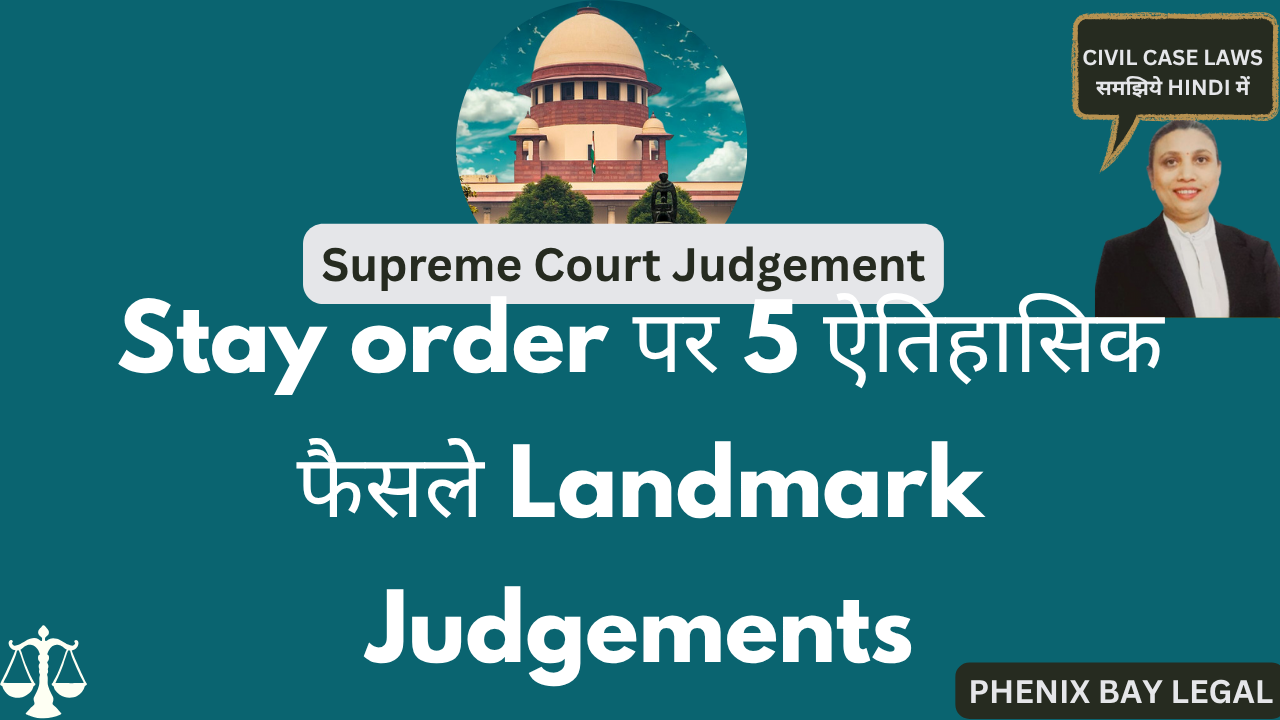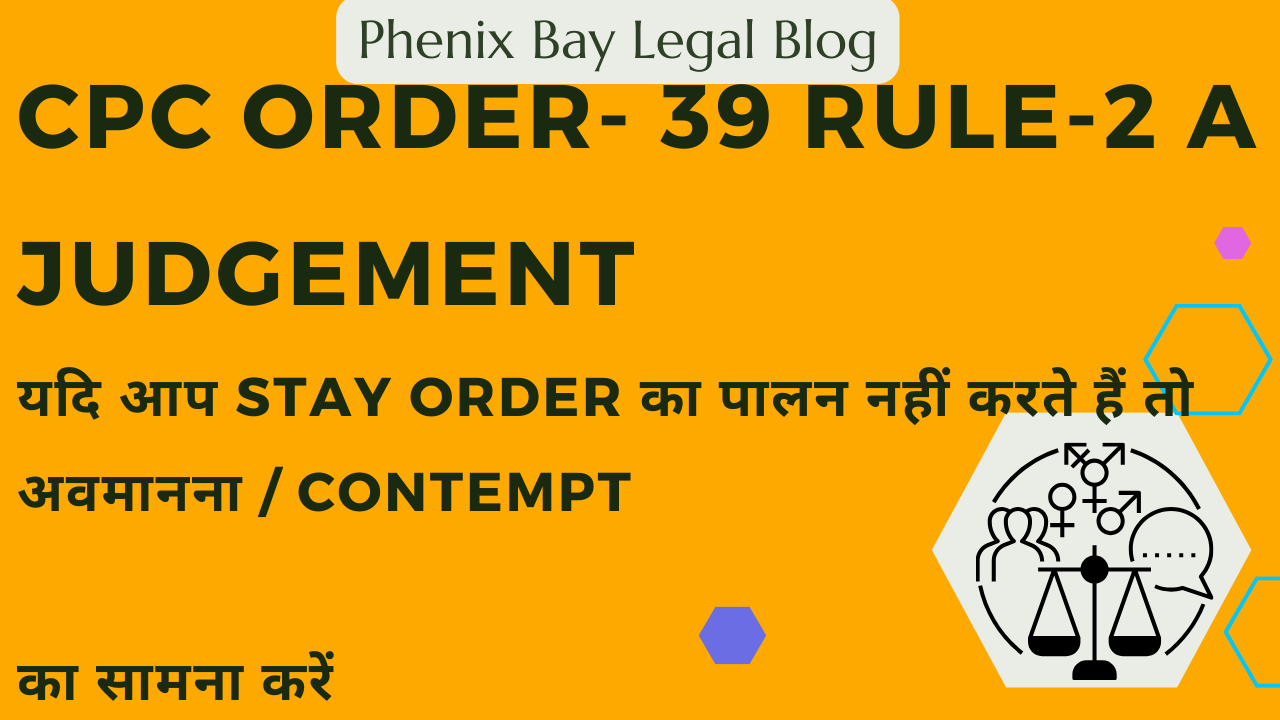
A Comprehensive Guide to Wasiyat (Will) Under Muslim Law in India: Legal Framework, Key Features, and Important Case Laws
In this article, we will dive into the legal framework surrounding Muslim wills in India, their limitations, important rulings from the Supreme Court, and why understanding these intricacies is critical if you’re planning to draft a Wasiyat or dealing with a will-related dispute.
A Comprehensive Guide to Wasiyat (Will) Under Muslim Law in India: Legal Framework, Key Features, and Important Case Laws
In India, laws related to the execution, creation, and validity of wills for Muslims are distinctly different from those governing individuals of other faiths. Unlike wills created under secular legal frameworks, a Wasiyat (the Islamic equivalent of a will) is deeply rooted in Muslim personal law, drawing its principles from Shariah (Islamic law). These laws, codified under the Muslim Personal Law (Shariat) Application Act, 1937, restrict the testamentary freedom of a Muslim individual, offering a specific and unique approach to wealth distribution after death.
In this article, we will dive into the legal framework surrounding Muslim wills in India, their limitations, important rulings from the Supreme Court, and why understanding these intricacies is critical if you’re planning to draft a Wasiyat or dealing with a will-related dispute.
This guide will also focus on how Phenix Bay Legal can help individuals in the process of creating a legally sound Wasiyat under Muslim law.
What is a Wasiyat?
A Wasiyat is essentially a will under Islamic law. It is a testamentary document that allows a Muslim to dispose of part of their property after death. However, unlike wills under secular law, which give individuals broad freedom to distribute their wealth, Islamic inheritance law imposes strict rules regarding how property should be divided, particularly among legal heirs.
Muslim law treats inheritance as a fundamental right of the legal heirs, which cannot be wholly overridden by the wishes of the deceased. The concept of a Wasiyat thus serves as a means for a Muslim to make limited testamentary gifts to beneficiaries while ensuring that the bulk of the estate is distributed in accordance with Islamic rules of succession.
Types of Wills in Indian Law:
To better understand how a Wasiyat differs from a will under Indian law, let's briefly compare it with wills made under the Indian Succession Act, 1925.
- Secular Will (Indian Succession Act, 1925): Individuals of other faiths can create a will in which they may distribute their entire estate according to their wishes, provided it does not contravene existing legal rights (e.g., dependents' claims).
- Muslim Will (Wasiyat): Under Muslim law, only up to one-third of the testator’s property may be bequeathed by will. The remaining two-thirds are reserved for legal heirs as dictated by Islamic inheritance law, regardless of the wishes of the testator.
This one-third rule is a critical distinction. Any disposition of property in excess of one-third of the testator’s assets, unless expressly agreed to by the heirs after the testator’s death, is rendered invalid under Muslim law.
Legal Framework Governing Wasiyat in India
The primary source of laws governing Muslim wills is the Muslim Personal Law (Shariat) Application Act, 1937. This law effectively makes Shariah the governing law for Muslims in India in matters of inheritance, wills, and succession. Unlike the Indian Succession Act, which applies to Hindus, Christians, and other communities, Muslim personal law is derived from religious sources like the Quran, Hadith (sayings of Prophet Muhammad), and Ijma (consensus of Islamic scholars).
Key Laws Influencing Muslim Wills:
- Muslim Personal Law (Shariat) Application Act, 1937: This act stipulates that Muslims in India are to be governed by their religious laws in matters related to marriage, inheritance, and wills. It enshrines the core principles of Shariah in Indian law.
- The Indian Evidence Act, 1872: While Muslim wills are governed by Islamic law, the Indian Evidence Act plays an important role when a will’s validity is contested in court. If disputes arise, Muslim wills must be proven in accordance with the rules of evidence laid down in this act.
- The Registration Act, 1908: Muslim law does not require a will to be registered for it to be valid. However, registration provides a layer of legal certainty and makes the will easier to prove in court if contested.
- Indian Probate Law: Muslims are generally not required to obtain probate (court validation) for their wills, unless the will is contested. Probate is more commonly sought in cases where non-Muslim wills are involved.
Key Features of Wasiyat under Muslim Law
A Wasiyat under Muslim law has unique characteristics that set it apart from wills created under secular legal systems. These features arise from the religious nature of Islamic inheritance rules, which seek to balance the testator’s freedom with the rights of the heirs. Here are the key features that make a Wasiyat distinct:
- Testamentary Capacity:
For a Wasiyat to be valid, the testator must meet the following conditions:
- Age and Mental Capacity: The testator must be of sound mind at the time of making the will and must have attained puberty (typically considered 15 years old). A person with mental infirmities, or one who is coerced into making a will, cannot bequeath a valid Wasiyat. If the testator suffers from any mental incapacity, the will may be rendered void under law.
- One-Third Rule: Limited Disposition of Property:
Islamic law imposes strict limitations on how much property a Muslim testator can dispose of by will. The testator may only will away one-third (1/3) of their property after settling debts and other obligations. The remaining two-thirds must be distributed according to Islamic inheritance law (Faraid), which designates fixed shares for heirs, such as children, spouses, and parents.
- Heirs’ Consent: If a testator wishes to bequeath more than one-third of their property, they must obtain the explicit consent of the legal heirs after their death. Without such consent, any bequest exceeding the one-third limit is considered void.
- Choice of Beneficiaries:
A Muslim testator is free to leave their one-third share of the property to anyone they wish. This may include individuals outside the family, such as friends, neighbors, charitable organizations, or even non-Muslims. However, the remaining two-thirds of the estate must be distributed according to Shariah principles, which prioritize the rights of the heirs.
- Written vs. Oral Wills:
Muslim law recognizes both written and oral wills. Unlike secular law, which generally favors written documentation, Islamic law allows for the validity of oral wills, provided they are supported by sufficient evidence, typically in the form of witnesses. Nevertheless, having a written will is advisable, as it reduces the chances of disputes and simplifies the process of execution.
- The Role of an Executor (Wasi):
A testator may appoint an executor, known in Islamic law as a Wasi, to manage the execution of the will. The Wasi is responsible for ensuring that the deceased’s estate is distributed according to the terms of the will, provided these terms do not contradict Islamic inheritance rules. The Wasi must settle the deceased’s debts, manage funeral expenses, and then distribute the remaining estate as per the Wasiyat and Shariah principles.
What Should Be Included in a Valid Muslim Will?
While drafting a Wasiyat, it’s essential to ensure that it adheres to Islamic law and covers all necessary elements to avoid disputes after the testator’s death. Here’s a breakdown of what should be included in a Muslim will:
- Name of the Testator: The will should begin with the testator’s full name and a statement affirming that they are of sound mind and making the will voluntarily.
- Property Details and Beneficiaries: The testator should clearly state how they wish to distribute the one-third of their estate that is available for testamentary disposition. The remaining two-thirds must be left for legal heirs.
- Appointment of an Executor: If the testator wants to appoint someone to oversee the execution of their will, they should name the executor or Wasi and provide clear instructions regarding the management of the estate.
- Debts and Liabilities: Islamic law places great importance on fulfilling debts. The will should detail any outstanding debts and specify how they should be settled before the distribution of assets.
- Funeral Instructions: Many testators include provisions for their funeral arrangements, including the payment of funeral expenses, as Islamic law mandates that such costs be settled from the estate.
What Should Not Be Included in a Muslim Will?
Several key points should be avoided when drafting a Muslim will. Failing to adhere to these can render parts of the will invalid:
xcessive Bequests: Any bequests exceeding one-third of the estate without the consent of the heirs will be deemed invalid.
- Overriding Islamic Inheritance Law: A testator cannot override the Faraid, which are the fixed shares for legal heirs under Islamic inheritance law. If a will attempts to bypass these shares, the court will invalidate those portions.
- Coercion or Undue Influence: A will must be made voluntarily. If there is evidence of coercion, duress, or undue influence
- Coercion or Undue Influence: A will must be made voluntarily. If there is evidence of coercion, duress, or undue influence, the will can be declared void. For example, if a testator is pressured by a relative or beneficiary to include them in the will, the affected portions of the will could be invalidated by a court.
- Bequeathing Property to Legal Heirs: Under Islamic law, legal heirs (children, spouse, parents, etc.) already have fixed shares in the estate, and therefore, the testator cannot use the one-third portion of their property to grant additional shares to these heirs. The will can only provide for non-heirs or charitable causes. If the will attempts to leave additional property to an heir, that section of the will may be challenged and struck down.
- Contradicting Islamic Law: A Muslim will must not contain any provisions that violate the principles of Islamic law. For example, it cannot direct that debts be left unpaid, as Islamic law places great importance on fulfilling one’s financial obligations. Similarly, the will cannot mandate actions or instructions that contradict religious practices.
Process of Executing a Muslim Will (Wasiyat)
The process of executing a Muslim will begins after the death of the testator. The appointed executor, or Wasi, is responsible for ensuring that the wishes outlined in the will are carried out, provided they align with Islamic inheritance laws. Here’s a step-by-step breakdown of how a Muslim will is executed:
- Funeral Arrangements: The Wasi is responsible for arranging the testator’s funeral according to Islamic rites. The funeral expenses are paid from the testator’s estate.
- Payment of Debts: Before any property can be distributed to the beneficiaries, the Wasi must ensure that all of the testator’s debts are paid. In Islam, fulfilling debts is seen as an obligation that takes precedence over the distribution of the estate.
- Distribution of the Estate:
- Two-Thirds to Legal Heirs: The Wasi must distribute two-thirds of the testator’s estate to the legal heirs in accordance with Islamic inheritance laws (Faraid). These shares are fixed and cannot be altered by the testator’s will.
- One-Third as Bequeathed: The remaining one-third of the estate is distributed as per the instructions in the Wasiyat. This portion can be given to non-heirs, charitable organizations, or other beneficiaries as specified in the will.
- Handling Disputes: If there are disputes regarding the validity of the will or its provisions, the Wasi may need to involve the courts to resolve these issues. Courts will typically examine whether the will complies with Islamic law, whether the one-third rule was followed, and whether the will was made voluntarily and without coercion.
The Role of the Indian Evidence Act and Registration Act in Proving a Muslim Will
As mentioned earlier, Muslim wills do not fall under the Indian Succession Act, 1925, which governs wills for non-Muslims in India. However, secular laws like the Indian Evidence Act, 1872 and the Registration Act, 1908 can play an important role when a Muslim will is contested or brought before a court.
Indian Evidence Act, 1872:
The Indian Evidence Act comes into play when there are disputes about the validity of the will. If a will is contested, the court will apply the provisions of the Evidence Act to determine whether the will is genuine and whether it was made by the testator in a sound state of mind. This involves examining witness testimony, documentary evidence, and other relevant information.
- Oral Wills: Since Muslim law allows for oral wills, the court may need to rely heavily on witnesses to prove that the will was indeed declared by the testator. The court will examine whether the witnesses were credible, whether they were present at the time the will was made, and whether they understood the testator’s intentions.
- Mental Capacity and Free Will: The Evidence Act is also crucial when determining whether the testator had the mental capacity to make a valid will. If the testator was suffering from a mental disorder, or if there is evidence that they were coerced into making the will, the court can declare the will invalid.
Registration of Wills Under the Registration Act, 1908:
Under Muslim law, it is not mandatory to register a will. However, registering a will under the Registration Act, 1908 provides added legal protection. Registered wills are more difficult to dispute, as the court presumes them to be genuine unless strong evidence to the contrary is presented.
- Why Register a Muslim Will?: Although it is not a legal requirement, registering a Muslim will can prevent unnecessary disputes and ensure that the testator’s wishes are followed. Registration provides a public record of the will and makes it easier to prove the will’s authenticity in court.
Historical Background of Muslim Inheritance Law and Wasiyat
The concept of inheritance in Islam is deeply rooted in religious tradition. The rules governing wills and inheritance are derived from the Quran, the Hadith (sayings and actions of the Prophet Muhammad), and centuries of Islamic legal scholarship.
Quranic Foundation of Inheritance Rules:
The Quran lays down specific instructions for the distribution of an individual’s estate among their heirs. These rules are meant to ensure fairness and justice, preventing the concentration of wealth in a single lineage while maintaining the financial stability of close relatives. The fixed shares for heirs are prescribed in Surah An-Nisa (4:11–12), which details how the estate is to be divided among children, parents, spouses, and other relatives.
Historical Evolution of the One-Third Rule:
The one-third rule, which limits the amount of property a Muslim can bequeath in a will, has its origins in the Hadith. The Prophet Muhammad is reported to have said that a person should not bequeath more than one-third of their estate, and that even one-third may be too much. This rule is meant to protect the rights of the heirs while still allowing the testator some discretion to give gifts to non-heirs or charitable causes.
Ijma and Qiyas in Islamic Jurisprudence:
In addition to the Quran and Hadith, the principles of Ijma (consensus among Islamic scholars) and Qiyas (analogical reasoning) have played a role in the development of Islamic inheritance law. These sources of law have been used to address new issues that arise over time, ensuring that Islamic law remains relevant to changing social and economic conditions.
Important Supreme Court Judgments on Muslim Wills
Several landmark Supreme Court cases have addressed key issues related to the validity of Muslim wills, particularly the interpretation of the one-third rule and the rights of heirs. Here are a few notable judgments:
- Mahboob Sahab v. Syed Ismail (1995):
In this case, the Supreme Court reiterated that a Muslim cannot bequeath more than one-third of their estate. The court ruled that any bequest in excess of one-third, unless consented to by the legal heirs, is invalid. This case highlighted the primacy of Islamic inheritance rules over the wishes of the testator, reinforcing the principle that a will must not violate the rights of legal heirs.
- Akhtari Begum v. Rahmat Husain (1987):
This case involved a dispute over the distribution of property under a Muslim will. The Supreme Court ruled that the consent of the legal heirs is necessary for any bequests that exceed the one-third limit. The court’s decision reinforced the idea that Islamic law places limits on testamentary freedom, ensuring that heirs are not unfairly deprived of their rightful shares.
- Raihanunnessa v. Asgar Ali (1911):
In this pre-independence case, the Privy Council ruled that a Muslim testator’s ability to will property is strictly limited to one-third of their estate. The court emphasized that any attempt to override this limitation is contrary to Islamic law and will be declared void. This ruling set an important precedent for later cases, confirming that the one-third rule is a fundamental aspect of Muslim inheritance law.
Conclusion: Legal Guidance for Creating a Valid Wasiyat
Creating a valid and legally enforceable Wasiyat requires careful consideration of Islamic inheritance laws and the legal framework that governs wills in India. A well-drafted Wasiyat ensures that the testator’s final wishes are respected, while also protecting the rights of legal heirs.At Phenix Bay Legal, we offer personalized legal services to help you draft a legally sound Wasiyat that complies with both Islamic law and Indian law. Whether you need assistance in creating a will, handling disputes, or navigating the probate process, our team of experienced lawyers is here to guide you every step of the way.
Contact Phenix Bay Legal today for expert advice on drafting your Wasiyat and ensuring that your estate is distributed according to your wishes and the principles of Islamic inheritance law.
Link for Wasiyat Format By Phenix Bay LegalMuslim Wasiyat
Subscription plan to acess all Formats
Civil Criminal and Contract Drafting Short Course
#MuslimLaw #IslamicInheritance #Wasiyat #MuslimWill #IslamicLaw #EstatePlanning #ShariaLaw #InheritanceLaw #LegalAdvice #PhenixBayLegal #WillPreparation #IndianLaw #SuccessionLaw #ProbateLaw #EstateLaw #IslamicWills #LegalServices #WillsAndTestaments #InheritanceDisputes #MuslimInheritanceLaw #PropertyLaw #WillsInIndia #FamilyLaw #ExecutorDuties #IslamicEstatePlanning #LegalDocumentation
#MuslimLaw #IslamicInheritance #Wasiyat #MuslimWill #IslamicLaw #EstatePlanning #ShariaLaw #InheritanceLaw #LegalAdvice #PhenixBayLegal #WillPreparation #IndianLaw #SuccessionLaw #ProbateLaw #EstateLaw #IslamicWills #LegalServices #WillsAndTestaments #InheritanceDisputes #MuslimInheritanceLaw #PropertyLaw #WillsInIndia #FamilyLaw #ExecutorDuties #IslamicEstatePlanning #LegalDocumentation
More >>

Jyoti Sharma vs. Vishnu Goyal & Anr. 2025 INSC 1099
This was a long running legal battle between a landlord and her tenants over a shop. The landlord, Jyoti Sharma, wanted her shop back for two main reasons: The tenants had stopped paying rent. She needed the shop to expand her family's business (her bonafide need).

Landmark Judgement on Injunction
In civil, commercial, or even family disputes. But when is a simple injunction suit enough? When do you need to add a declaration of title? And how do courts balance urgency vs evidence in interim relief?

Case Analysis: Stay Order Violation and Contempt of Court by Supreme Court of India
Giving an undertaking to the court is equivalent to an order of injunction—any violation invites contempt proceedings.Injunction orders remain valid until formally vacated by a court—violation before vacation can lead to punishment.

Order 7 Rule 11 of CPC Explanation in Land Mark Judgement
The Sopan Sukhdeo Sable judgment is a landmark ruling that reinforces Order 7 Rule 11 of CPC as a safeguard against frivolous and legally untenable claims. It highlights the importance of examining only the plaint’s contents to decide whether a suit should be dismissed at the threshold.

CPC Order- Order 14 to 20 Explanation IMPORTANT CASE LAWS +MCQ’S for Judiciary Exam Preparation
CPC Order- Order 14 to 20 Explanation IMPORTANT CASE LAWS +MCQ’S for Judiciary Exam Preparation

Supreme Court ImportanatJudgement - Landlord Tenant Bonafide need
This case involves a dispute over eviction of a tenant based on the bona fide need of the landlord. The Supreme Court ruled in favor of the landlord, reversing the High Court's decision. Below is a detailed breakdown of the judgment with relevant legal principles, precedents, and reasoning.